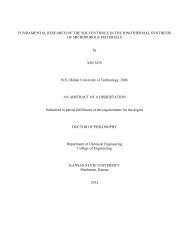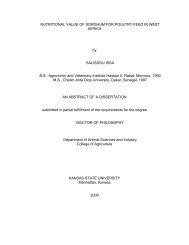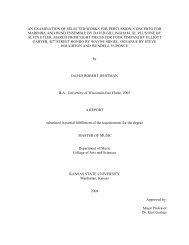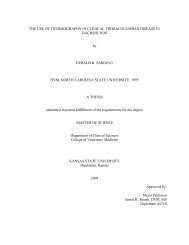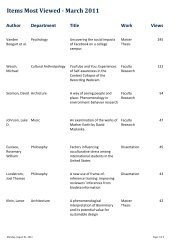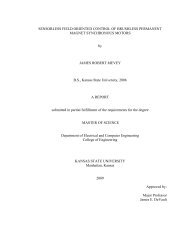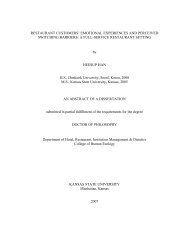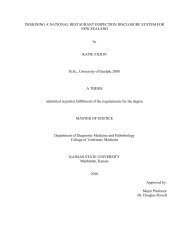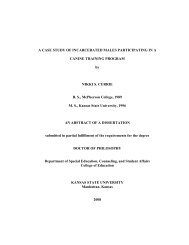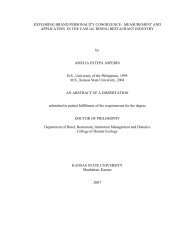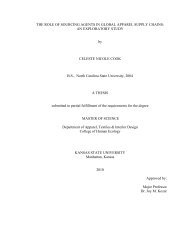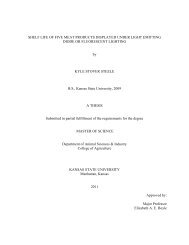SELFISH INTENTIONS - K-REx - Kansas State University
SELFISH INTENTIONS - K-REx - Kansas State University
SELFISH INTENTIONS - K-REx - Kansas State University
Create successful ePaper yourself
Turn your PDF publications into a flip-book with our unique Google optimized e-Paper software.
person to get divorced. First, the party had to get a decree of separation from the ecclesiastical<br />
court. Then the innocent party instituted charges in civil court to receive damages from the<br />
person who had wronged him or her. Lastly, the party petitioned Parliament to obtain an Act of<br />
Parliament that finally would sever the marriage. This process was expensive and time<br />
consuming; therefore, divorce was uncommon and restricted to the wealthy. 11<br />
English practice was therefore different than most Protestant countries such as<br />
Switzerland, Germany, Scotland, and Scandinavia that viewed marriage as a non-sacramental<br />
agreement or contract. Marriage in these countries could be blessed by the church if the couple<br />
wished, but legally they were married when the contract was completed. In Protestant England,<br />
however, the church courts retained control over marriage laws, although the Puritans departed<br />
from the English practice by arguing to abolish the church courts and implementing marriage by<br />
contract, thus following the changes occurring in Protestant countries. As the historian Sandra<br />
VanBurkleo elaborates, “By insisting on sacramental marriage and administering canon law in<br />
civil courts, Anglicans rowed against the Protestant current. But even radical Puritans thought<br />
that marriage, unlike simple civil agreements, had social and cultural implications and so could<br />
be regulated by secular authorities.” 12<br />
In colonial America, both the Puritan and the Anglican models were practiced, with the<br />
Puritan conceptions of marriage dominating the New England colonies and the Anglican in<br />
Southern colonies. The liberality of divorce law hence took on a North-South aspect with the<br />
most liberal divorce law in the New England colonies and the most conservative in the South.<br />
Politicians and clergymen of both regions, however, wanted to see their citizens married. Early<br />
11 P.K. Virdi, The Grounds for Divorce in Hindu and English Law: A Study in Comparative Law, (Jawaharnagar,<br />
Delhi: Motilal Banarsidass Publishers, 1972), 46.<br />
12 VanBurkleo, 14.<br />
2



